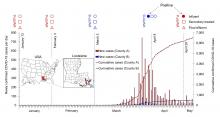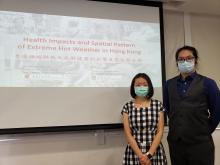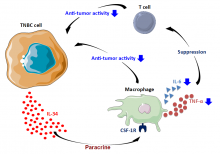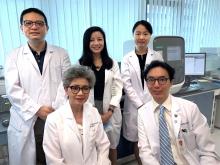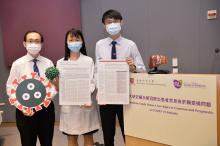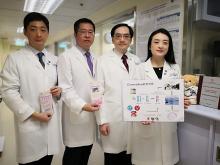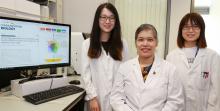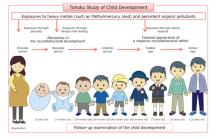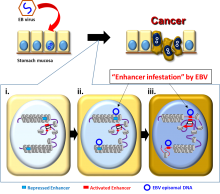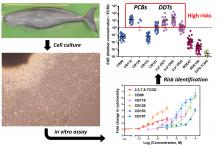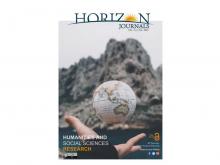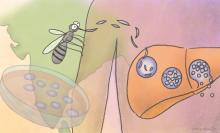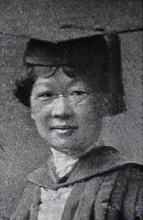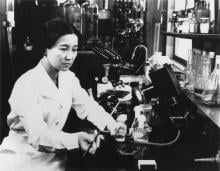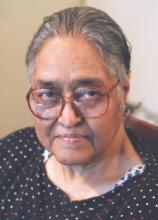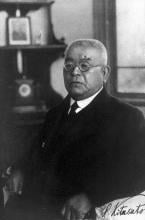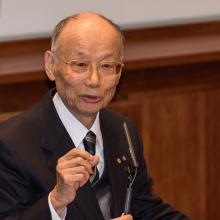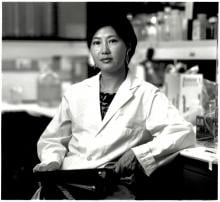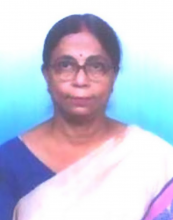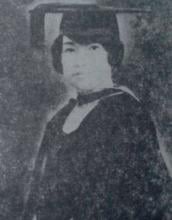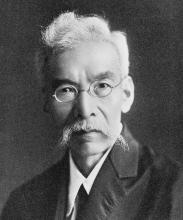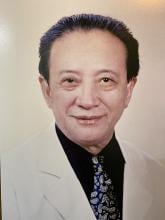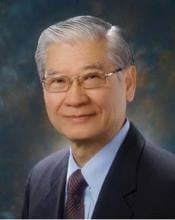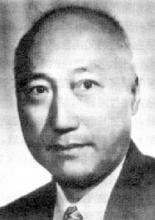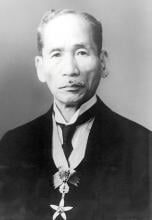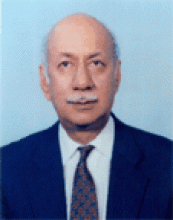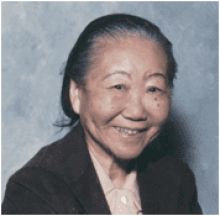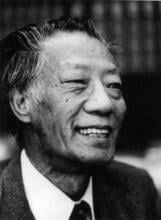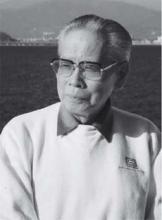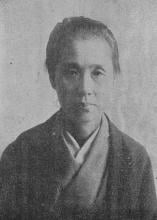Health
News
26 Aug 2020
Duke-NUS, the only graduate-entry medical school in Singapore, has joined the TriNetX global research network to increase clinical trial adoption and to facilitate better collaboration with other global healthcare organizations (HCOs). This latest member for TriNetX in Asia will provide the network with access to de-identified data from more than a million patients.
26 Aug 2020
A group of scientists have detected genetic material from SARS-CoV-2 in untreated wastewater samples collected in April 2020 from two wastewater treatment plants in Louisiana, USA.
24 Aug 2020
Hong Kong has been experiencing hotter summers and more scorcher days in recent years due to climate change and heat island effect. Amid the increasing number of “hot nights”, it is found that consecutive “hot nights” are more detrimental to human health than “very hot days”, although the actual temperature does not reach the level of daytime, according to a collaborative research conducted by the Institute of Future Cities at The Chinese University of Hong Kong (CUHK), as well as researchers from the University of Hong Kong.
The research also identified that lack of urban greenery and poor air ventilation in a high-density context are factors that lead to more “hot nights” than “hot days” in some areas. The team suggests that better urban planning and building design are long-term mitigation measures.
21 Aug 2020
Hokkaido University scientists have shown that Interleukin-34 is a prognostic marker and drug target for Triple Negative Breast Cancer.
21 Aug 2020
Uterine fibroid is a common benign gynaecological disease for women of reproductive age and often leads to heavy menstrual bleeding, pelvic pain and pressure related symptoms. Both surgical and non-surgical treatment options, such as High-Intensity-Focused-Ultrasound (HIFU), are available for patients nowadays. The Faculty of Medicine at The Chinese University of Hong Kong (CU Medicine) has developed a modified HIFU treatment protocol for patients with uterine fibroid. The innovative procedure implements a modified energy transmission protocol and oxytocin augmentation which has proved to provide better therapeutic outcomes than other non-surgical treatments. The findings were recently published in the international journal Ultrasound in Medicine & Biology.
18 Aug 2020
Under the “Saving the Lives of Healthcare Workers” project in the Philippines, ASSIST and Project HOPE will distribute kits of personal protective equipment (PPE) to select hospitals and health facilities in COVID-19 hotspots in the Philippines.

18 Aug 2020
Malignant glioma is the most common type of primary brain cancer. But lack of early diagnosis, among many other factors, has made it difficult to be treated. Recently, a team of cross-disciplinary scientists from City University of Hong Kong (CityU) has discovered new biomarkers in blood serum, which can be quantitatively detected by the label-free biosensors developed by the team, for the early detection of glioma progression. The findings enable a non-invasive liquid biopsy of glioma to be conducted, making it a promising diagnostic tool in the future.
17 Aug 2020
Duke-NUS spinout, PairX, led by US and Singapore scientists and investors, to advance immunotherapy biotech exclusively licensed from Duke-NUS.
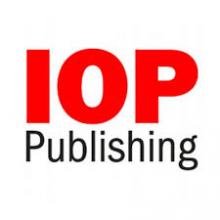
12 Aug 2020
Researchers in China have taken the first step towards a new way of treating gastric wounds by using a microrobot combined with the new concept of “in situ in vivo bioprinting” to carry out tissue repair inside the body.
12 Aug 2020
Forty-five of the world’s most influential leaders and innovators participated in EmTech Asia. They discussed how emerging technologies will influence industries related to artificial intelligence, robotics, sustainability, healthcare, immersive media, and more.
11 Aug 2020
Scientists from the Daegu Gyeongbuk Institute of Science and Technology, Republic of Korea, discover a new way to diagnose Alzheimer’s disease by analyzing the levels of specific proteins in nasal discharge. This simple and inexpensive method could help in timely diagnosis of Alzheimer’s disease, in order to start treatment as soon as possible, thus delaying disease progression.
11 Aug 2020
A large cohort study conducted by the Faculty of Medicine at The Chinese University of Hong Kong (CU Medicine), in collaboration with investigators from the University of Sydney, Australia, has discovered that shortened DNA telomere length is a useful biomarker linked to a higher risk of developing cardiovascular disease in patients with type 2 diabetes.
The Endocrinology and Diabetes team of CU Medicine evaluated this biomarker in over 5,300 type 2 diabetes patients during a 13-year follow-up period. Patients with cardiovascular disease at baseline or during follow-up had shorter tail-ends of DNA strands, expressed as relative Leukocyte Telomere Length (rLTL), than those who never had cardiovascular disease. For each unit relative decrease in rLTL, the risk of cardiovascular disease increased by 25%. These results have been published in the leading diabetes journal, Diabetes Care.
07 Aug 2020
Scientists have unveiled a correlation between high blood lead levels in children and methylation of genes involved in haem synthesis and carcinogenesis, indicating a previously unknown mechanism for lead poisoning.
06 Aug 2020
Researchers from the Faculty of Medicine at The Chinese University of Hong Kong (CU Medicine) have recently conducted a study to investigate the impact of liver injury on clinical outcomes in COVID-19 patients. Data from over 1,000 COVID-19 patients in Hong Kong was analysed and liver injury was found in around 20% of the patients. The estimated risk of COVID-19 patients with liver injury experiencing adverse clinical outcomes such as intensive care unit (ICU) admission, use of invasive mechanical ventilation or death was almost eight times of other patients. It is suggested that liver function monitoring is important regarding its association with adverse clinical outcomes in COVID-19 patients. These findings have been published recently in the world-renowned medical journal Gut.
In view of the high prevalence of various chronic liver diseases in the Asia-Pacific region, CU Medicine’s researchers led a group of experts from Mainland China, Japan, Singapore and Australia to issue a position statement on the management of COVID-19 patients with liver derangement. The statement has been published recently in another international medical journal The Lancet Gastroenterology & Hepatology.
05 Aug 2020
Community rehabilitation; psychological impact of caregiving emerges as top interests
05 Aug 2020
The somatic nuclear protein kinase VRK-1 increases the worm’s lifespan through AMPK activation, and this mechanism can be applied to promoting human longevity, the study reveals.
04 Aug 2020
Recurrent miscarriages (RM) cause frustration and trauma to couples who want to have a child. However, not all couples can find out about the underlying reasons because of medical constraints. The Department of Obstetrics and Gynaecology (O&G) of the Faculty of Medicine at The Chinese University of Hong Kong (CU Medicine) has successfully developed a new genome sequencing test called ChromoSeq to identify the genetic defects for married couples, who suffered from RM. When compared with the conventional karyotyping analysis, ChromoSeq offers greater accuracy in detecting potential genetic abnormalities associated with RM in affected couples. The team conducted a study on the innovation and the findings were recently published in the international journal American Journal of Human Genetics.
04 Aug 2020
Prognosis describes how serious a patient’s cancer is and his or her chance of survival. A genetic biomarker is a clinically useful tool to help estimate the state of the disease. A study, conducted by the Faculty of Medicine at The Chinese University of Hong Kong (CU Medicine), has identified a gene called GPR18 which can be a biomarker to help form the prognosis for a patient in nine cancer types. The research team has also provided new insights into B-cells for a cancer patient’s prognosis. The findings were recently published in the international scientific journal Communications Biology - Nature.
30 Jul 2020
A study conducted over the past 18 years has found differences between lead exposure effects in young Japanese boys versus girls.
30 Jul 2020
In a May 2020 Webinar, Dr. Sam Shah, Global Digital Health Advisor and Consultant with UK’s National Health System (NHS) discusses how the COVID-19 pandemic is reshaping healthcare with technology, specifically the response of UK’s NHS.
29 Jul 2020
COVID19 is teaching us one more new lesson – to look for new-onset diabetes and other non-communicable diseases in COVID19 patients by post-COVID19 vigilance.
27 Jul 2020
Epstein-Barr virus rewires host epigenome to turn on latent genetic enhancers that activate proto-oncogenes, leading to tumorigenesis in stomach cancer
27 Jul 2020
A research group has developed a new, lightweight and motor-less device that can be easily attached to an ankle support device - otherwise known as an ankle foot orthosis (AFO). The new device will aid stroke patients in their rehabilitation, improving their walking and preventing falls.
27 Jul 2020
The COVID-19 pandemic has thrown up unimaginable challenges for healthcare workers. Even simple outpatient procedures such as endoscopies can expose staff to the risk of infection.
20 Jul 2020
Environmental pollutants threaten the health of marine mammals. This study established a novel cell-based assay using the fibroblasts of a finless porpoise stranded along the coast of the Seto Inland Sea, Japan, to better understand the cytotoxicity and the impacts of environmental pollutants on the porpoise population. The results revealed that the concentrations of PCBs and DDTs which accumulated in the porpoise are likely to have an adverse effect at the cellular level.
13 Jul 2020
Acute kidney injuries can sometimes trigger the deterioration of small blood vessels and capillaries, leading to chronic kidney disease. But, this process is not completely understood. Now, for the first time, researchers from Daegu Gyeongbuk Institute of Science and Technology, Korea, in collaboration with teams from the University of Pittsburgh and University of Pittsburgh Medical Center, USA, have successfully used ultrasound super-resolution (USR) imaging to observe this process in live mice, revealing the promise of USR as a powerful diagnostic and research tool, and enhancing understanding of the disease.
09 Jul 2020
Researchers from the School of Biomedical Sciences of the Faculty of Medicine at The Chinese University of Hong Kong (CU Medicine) have recently applied an advanced statistical approach to analyse risk factors that may be causally related to COVID-19 infection. Results suggested that diabetes may be a risk factor leading to increased susceptibility to or severity of COVID-19 infection through changes in ACE2 expression, which is a key receptor for the virus.
A substantial proportion of COVID-19 death cases in Hong Kong suffered from diabetes. There is an urgent need to confirm risk factors and the mechanisms in order to protect the susceptible groups and identify effective treatments. The current study results were recently published in the international scientific journal Diabetes Care.
07 Jul 2020
The JUL 2020 regular issue of the Journal of Humanities & Social Sciences Research (JHSSR), Volume 2 (1) JUL. 2020 has been published ahead of time on 30 Jun 2020 and is now live at the Journal’s webpage.
02 Jul 2020
A method that involves infecting liver cells with mosquito-bred parasites could improve the study of malaria in India.
30 Jun 2020
Digital edition of CAREhab – Singapore Rehabilitation Conference 2020 postpones to 17 – 18 July 2020 in light of Singapore General Elections
Events
Sorry, no events coming up for this topic.
Researchers
Sorry, no researchers coming up for this topic.
- « first
- ‹ previous
- 1
- 2
- 3
- 4
Giants in history
Chinese biochemist Chi Che Wang (1894 - 1979), one of the first Chinese women to study abroad, advanced to prominent research positions at American institutions including the University of Chicago and the Northwestern University Medical School.
Ruby Sakae Hirose (1904 – 1960) was a Japanese-American scientist whose research contributed significantly to our understanding of blood clotting, allergies and cancer.
Flora Zaibun Majid ( 1939–2018) was an accomplished Bangladeshi researcher in botany and nutrition science and the first female chairperson of the Bangladesh Council of Scientific and Industrial Research.
Iranian physician and bacteriologist Azar Andami (8 December 1926 – 19 August 1984) developed a cholera vaccine to combat an outbreak that swept through the Middle East, India, Southeast Asia, and Africa in 1937.
Irene Ayako Uchida’s (8 April 1917 – 30 July 2013) strides to understand genetic diseases such as Down syndrome paved the way for early screening of chromosomal abnormalities in foetuses.
Baron Kitasato Shibasaburo (29 January 1856 – 13 June 1931) was a Japanese physician and bacteriologist whose work led to a new understanding of preventing and treating tetanus, diphtheria and anthrax.
Maggie Lim (5 January 1913 – November 1995) was a Singaporean physician who promoted family planning and expanded the access to clinics to improve the quality of life for mothers and children in Singapore’s early days.
By isolating soil microorganisms and studying the compounds they produce, Satoshi Omura (born 1935) discovered almost 500 organic compounds with unique properties that were produced by these microorganisms, including many new antibiotics.
The founder of the Adyar Cancer Institute in India, Muthulakshmi Reddy (30 July 1886 – 22 July 1968), fought to uplift women and girls from impoverished situations.
Chinese-American virologist and molecular biologist Flossie Wong-Staal (27 August 1946 – 8 July 2020) was the first scientist to clone HIV and determine the function of its genes.
Maharani Chakravorty (1937 – 2015) was one of India’s earliest molecular biologists whose research paved the way for advances in the treatment of bacterial and viral infections.
Archana Sharma (16 February 1932 - 14 January 2008) conducted research into plant and human genetics that expanded the understanding of both botany and human health. In relation to botany, she uncovered the means by which asexually-reproducing plants evolve into new species.
The first Thai woman to receive a degree in medicine, Margaret Lin Xavier (29 May 1898 – 6 December 1932), is best remembered for her compassion towards her less privileged patients.
In 1915, pathologist Katsusaburo Yamagiwa and his research assistant Koichi Ichikawa became the first to prove that chronic exposure to chemicals can cause cancer.
Filipino chemist and pharmacist Manuel A. Zamora (29 March 1870 – 9 July 1929) is best remembered for his discovery of the tiki-tiki formula to combat beriberi, a disease caused by Vitamin B1 deficiency.
After witnessing death and suffering as a youth in his home village during World War II, Nguyễn Tài Thu (6 April 1931 – 14 February 2021) set his sights on alleviating pain by becoming a doctor. After studying Traditional Chinese Medicine in China in the 1950s, Thu returned to Vietnam to serve in military hospitals. Eventually, he became the country’s foremost practitioner of acupuncture, a technique he first learned by inserting needles into himself.
David T. Wong (born 1936) is a Hong Kong-born American neuroscientist who is best known for discovering the antidepressant drug fluoxetine, better known as Prozac.
Indian organic chemist Asima Chatterjee (1917 to 2006) studied the medicinal properties of plant products, especially compounds known as vinca alkaloids.
Hsien Wu (24 November 1893 – 8 August 1959) is widely regarded as the founder of biochemistry and nutrition science in China. He was the first to propose that protein denaturation was caused by the unfolding of the protein, instead of chemical alteration.
Umetaro Suzuki (7 April 1874 – 20 September 1943) was a Japanese scientist best remembered for his research on beriberi, a disease caused by vitamin B1 deficiency, characterized by limb stiffness, paralysis and pain.
Syed Qasim Mehdi (13 February 1941 – 28 September 2016) was a Pakistani molecular biologist who was a founding member of the Human Genome Diversity Project (HGDP), which assessed human diversity by studying human migration, mutation rates, relationships between different populations, genes involved in height and selective pressure.
Tsai-Fan Yu (1911 – 2 March 2007) was a Chinese-American physician and researcher who was the first female full professor at Mount Sinai School of Medicine. She discovered that gout, a condition characterized by the painful inflammation of joints, was caused by elevated levels of uric acid in the bloodstream.
Min Chueh Chang (10 October 1908 – 5 June 1991) was a Chinese-American biologist who studied fertilization in mammalian reproduction.
A Japanese surgeon, Tetsuzo Akutsu (20 August 1922 – 9 August 2007) built the first artificial heart capable of keeping an animal alive.
Ogino Ginko (3 March 1851 – 23 June 1913) was the first registered female doctor to practise modern medicine in Japan.


